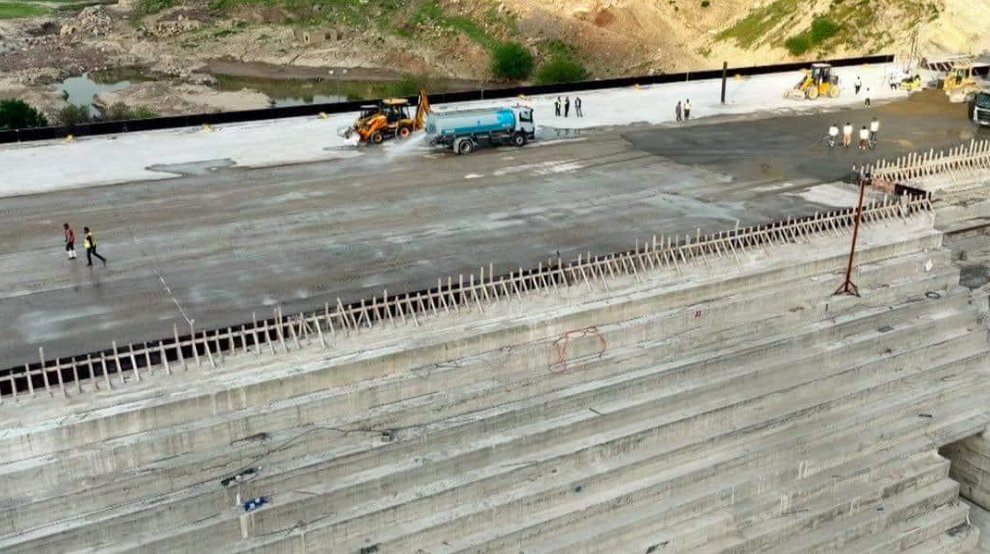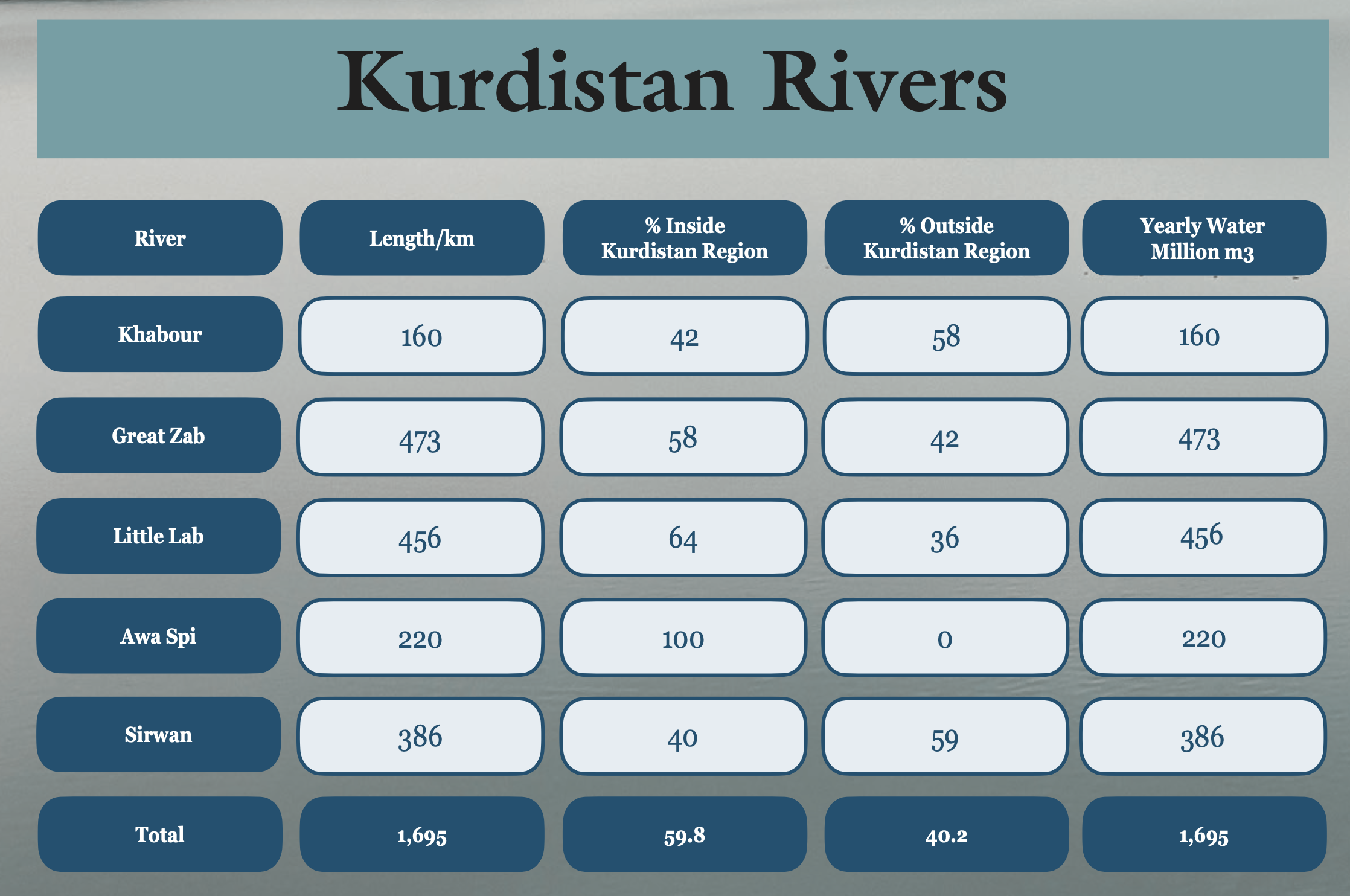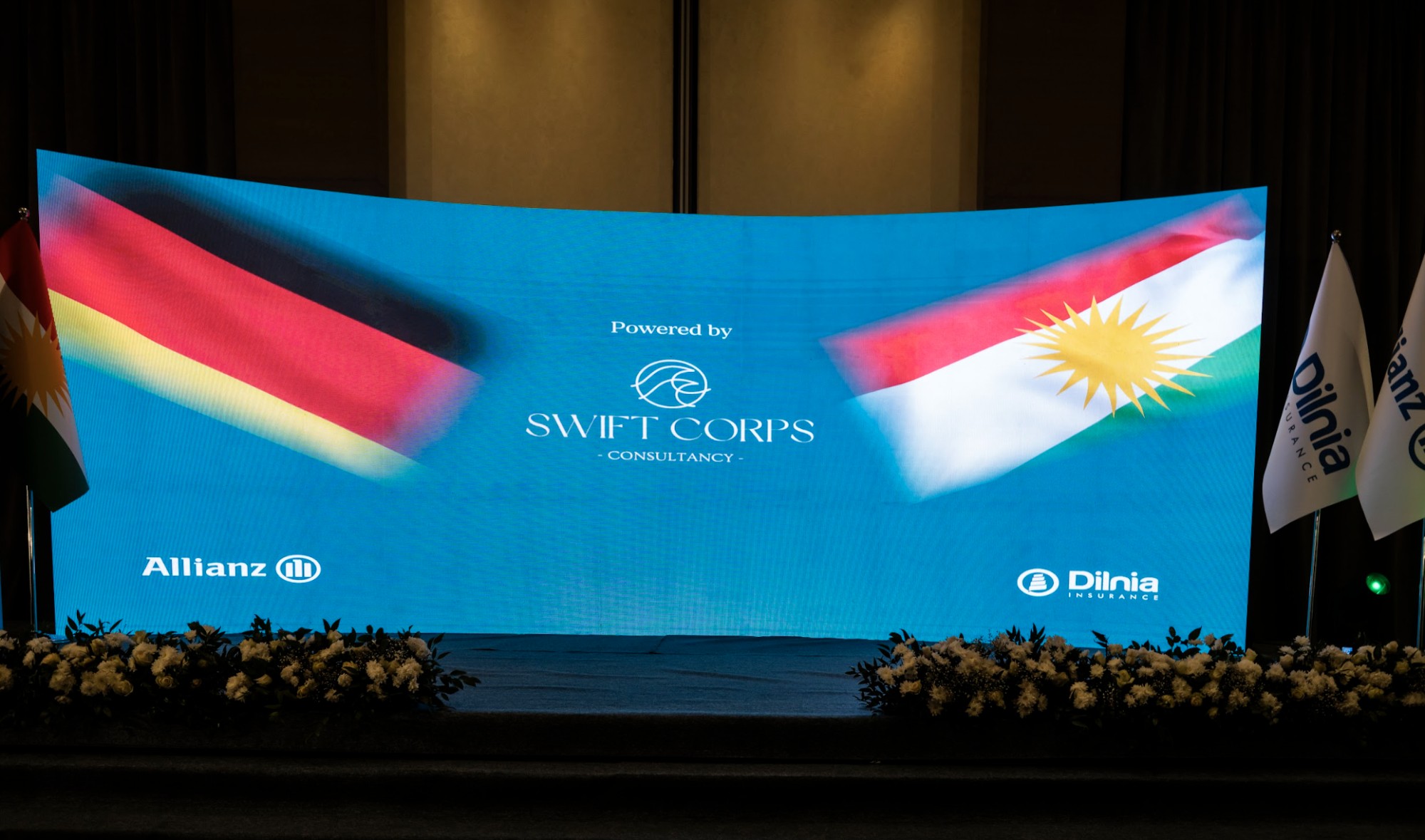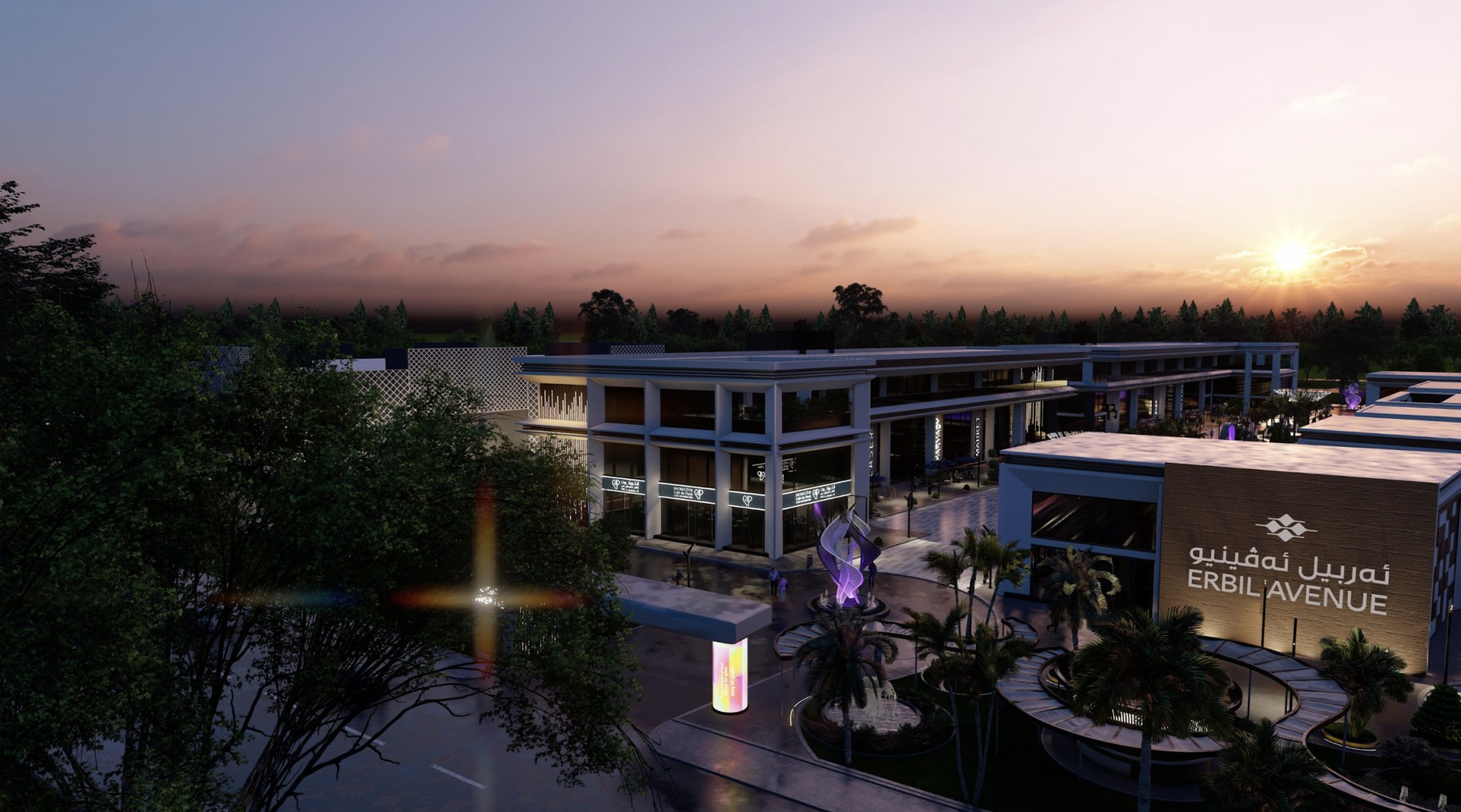As long as water is essential for human survival, crises related to this limited and vital resource are always right around the corner. While comprehensive solutions to water security are complex, the underlying causes are surprisingly simple — climate change, inefficient water management, deforestation, and geopolitical conflict, to name just a few. As the disruptors of nature, humans are the reason behind all these factors; as the ‘guardians of the civilization’, we bear the responsibility to address them.
In recent years, global warming has become a tangible crisis for every corner of the world, and the Kurdistan Region is no exception. Environmental scientists have already warned that Iraq is one of the 19 global hotspots where freshwater levels have been depleted to dangerously low levels. In 2019, the United Nations Environment Program identified Iraq as the fifth most vulnerable country in the world to “decreased water and food availability and extreme temperatures, which will negatively affect food security, water security, social security, and health security.”

The state of water in the Kurdistan Region
While international efforts are afoot to prevent the situation from worsening, reversing the depletion of freshwater level requires a greater collective commitment. This is why the Kurdistan Region has rolled up sleeves to save this lifeblood for the next generation.
In line with this vision, the Kurdistan Regional Government (KRG) has devised comprehensive strategies to nip the looming water crisis in the bud by introducing new water management policies, constructing dams, building ponds, reviving groundwater, and raising public awareness.
In addition to rainfall and groundwater, the Kurdistan Region gets much of its water from the Khabur, Great Zab, Little Zab, Awa Spi, and Sirwan Rivers, which have a total combined length of 1,695 km. Nearly 60% of these rivers lie within the region’s borders. However, these resources may not meet the demands of a growing population and much-needed agriculture sector, a reality acknowledged by Kurdish policymakers who have already begun constructing more than a dozen dams and scores of ponds.
There are currently 17 dams across the four provinces of Erbil, Duhok, Sulaymaniyah, and Hallabja, where a population of over 6 million people heavily relies on all the available water resources. The total capacity of the region’s current dams is 9,950 billion cubic meters. The largest of the current dams is Dukan Dam, which holds only 2 billion cubic meters of water despite having a capacity of 7 billion and provides drinking water for nearly three million people.
Constructing new dams and managing water
Since the onset of the 9th Cabinet led by Prime Minister Masrour Barzani, the Kurdistan Region has begun constructing 15 new dams, including nine strategic ones whose reservoir capacities range from 1 million to 100 million cubic meters, according to Abdulrahamn Khani, Director General of Dams in the KRG.
In addition, the Iraqi Federal Government has outlined plans to construct 49 dams throughout the country as farmlands in central and southern provinces continue to shrink each year. Of these 49 dams, 20 will be built in the Kurdistan Region.
According to Khani, four new dams with an overall capacity of 28.6 million cubic meters were completed in May 2023. The Ministry of Agriculture and Water Resources said the dams included the Dewana Dam in Sulaymaniyah (19 million cubic meters), the Khans Dam in Duhok (6.7 million cubic meters), the Tourajar Dam in Garmian (1.7 million cubic meters), and the Chamrga Dam in Erbil (1.2 million cubic meters).
The official further noted that five other dams are currently under construction, with two over 90% complete.
Despite the deep concerns around water security in the region, the KRG’s Director General of Water Resources Karwan Sabah Hawrami believes that the region is still in a more secure position compared to Iraq and neighboring countries.
Speaking to Kurdistan Chronicle in an exclusive interview, Hawrami explained that the Kurdistan Region has the necessary water resources but needs international support to improve its infrastructure to preserve these resources through a more comprehensive and modernized management plan.
“We have no ability to arrest the accelerating pace of global warming that we witness today around the world, and are paying the price. This is why we need international support to prevent a water crisis in the region,” Hawrami pointed out, noting that giving the Kurdistan Region the necessary means to tackle the issue would also secure the future of Iraq.
According to the official, 85% of the water in Kurdistan's dam reservoirs is used to support people living downstream outside the region, and 65% of other water resources freely flow into Iraq without any blockage in the Kurdistan Region.

Ponds and groundwater
Apart from dams, the KRG has implemented additional measures to address future water scarcity. Recognizing the extensive cost of dam construction, the regional government has taken the initiative to construct numerous ponds throughout the region.
These ponds serve multiple purposes: preventing flash floods, providing water for agricultural projects, promoting tourism, and most importantly, replenishing groundwater. Over the past three decades, the region's groundwater has been severely depleted due to the excessive use of water wells. The construction of these ponds aims to restore and rejuvenate the groundwater resources of Kurdistan.
In 2022 the KRG approved the construction of 41 new ponds, whose capacities range from 200,000 cubic meters to over 800,000 cubic meters. Once these ponds are built, the total number across the region will reach 149.
“Ponds also encourage reverse migration to revive rural areas, which could play a significant role in the food security of the region. There were villages with less than 15 households prior to the construction of the ponds; now they are populated by more than 40 households with thousands of livestock and active agricultural production,” Hawrami added.
Sardar Sattar is a translator and journalist based in the Kurdistan Region. He has an MA in English Studies from the University of Lodz, Poland. He has translated several books and political literature into Kurdish and English. He writes regularly for local and international newspapers and journals.

